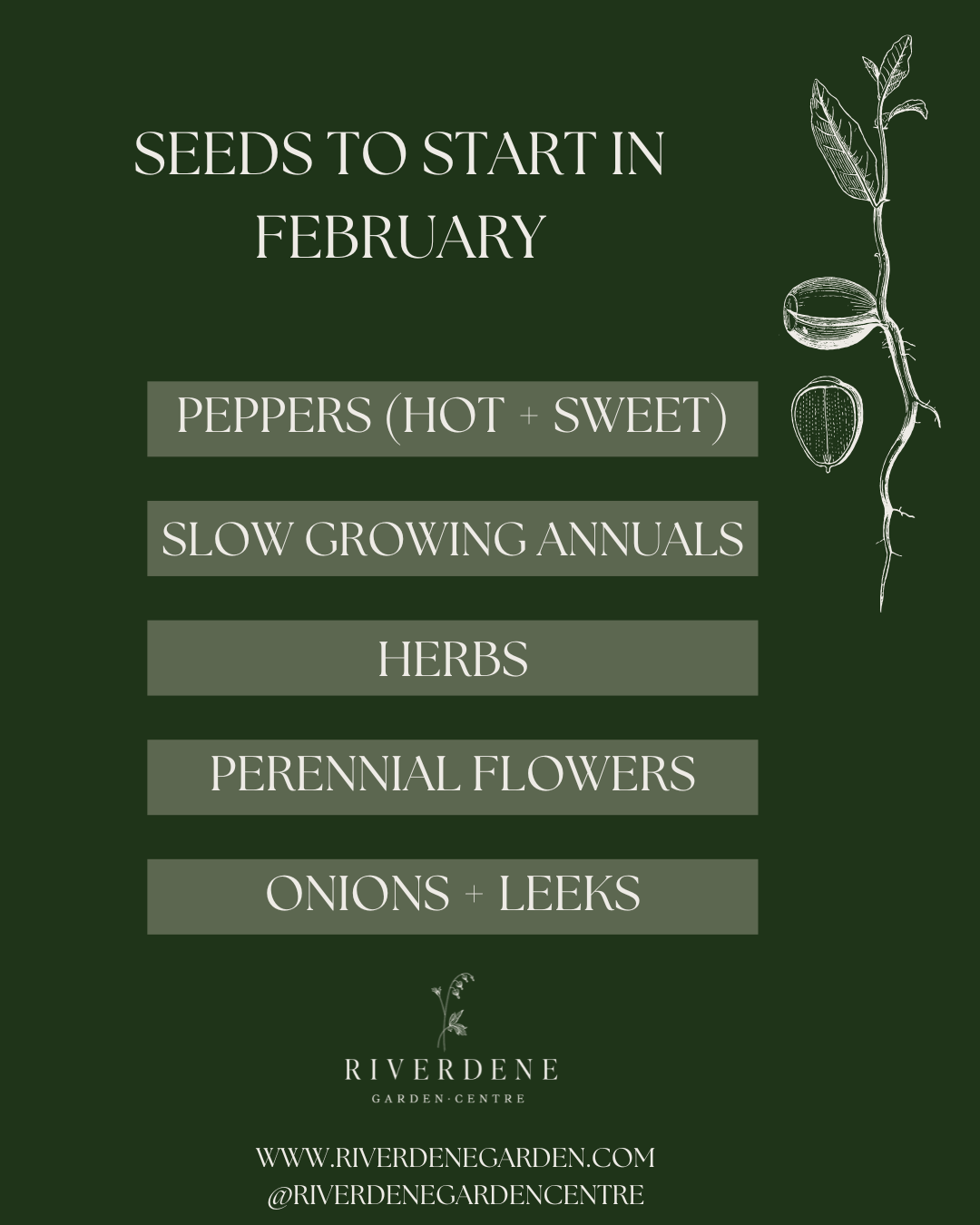
Seeds you can Start in February
We're in the middle of another cold spell in Swift, but if you're wanting to get a head start on your garden, here's a list of a few plants you can get seeded for Spring! The plants listed need or benefit from a longer growing season, so you can enjoy them all season.
1. Peppers (Hot & Sweet)
Peppers take their time to grow, often needing 8-12 weeks before they’re ready to move outdoors. Starting them in February ensures they’ll be strong enough to handle the transition when the weather warms. Keep them warm (21-26°C) and provide plenty of light for the best results.
2. Onions & Leeks
Large storage onions or delicate green onions, February is a good time to start these seeds. These slow-growing alliums need time to develop before transplanting in spring. Use a shallow tray with rich, well-draining soil and trim the tops as they grow to encourage sturdy stems.
3. Perennial Flowers
Many perennials benefit from an early start, including lavender, echinacea, and rudbeckia. These plants need time to establish strong root systems before transplanting outdoors. Some seeds require cold stratification (a period of cold before germination), so check the packet for specific instructions.
4. Herbs
Herbs like rosemary, thyme, oregano, and parsley have slow germination rates, making February a great time to get them started. Once they sprout, they’ll thrive indoors near a bright window or under grow lights. By spring, you’ll have a head start on fresh, herbs for your kitchen.
5. Slow-Growing Annuals
Flowers like petunias, impatiens, and snapdragons require extra time to develop before transplanting outside. Starting them early ensures they’ll be blooming beautifully by summer. Use a heat mat and grow lights to encourage strong, healthy seedlings.
Seed-Starting Tips for Success
- Use Quality Soil – A light, well-draining seed-starting mix helps prevent disease and supports healthy root growth.
- Provide Ample Light – A south-facing window may not be enough—consider using grow lights for 12-16 hours per day.
- Keep Seeds Warm – Most seeds germinate best between 18-26°C. Heat mats can help maintain a steady temperature.
- Water Gently – Keep the soil consistently moist but not soggy to prevent damping off (a fungal disease that kills young seedlings).
